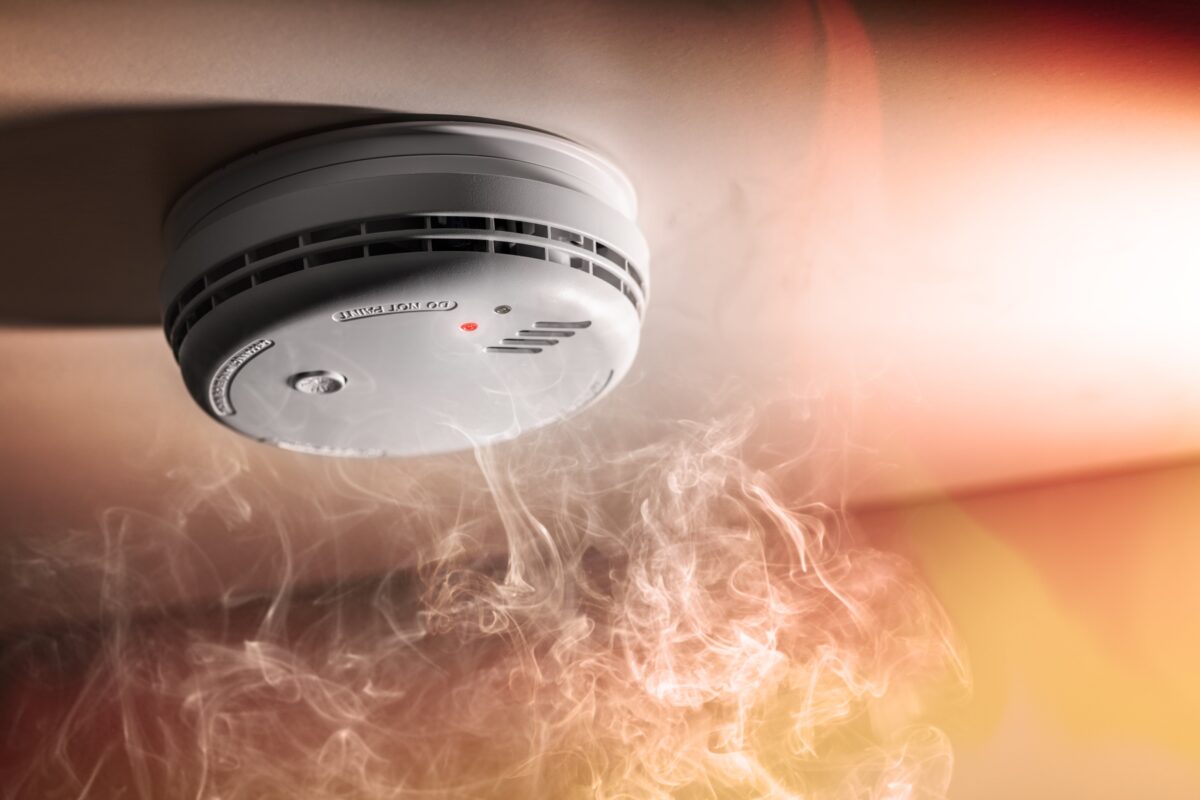We are on countdown, but what for you might ask…
In the property world, the rules are forever changing, and as both sales and lettings agents, we feel a responsibility to keep you updated on these changes. Are they all exciting? No. But is it essential that, as homeowners and tenants, you are educated on the changes and are kept one step ahead of the game? Absolutely. So here we find ourselves sharing our knowledge with you guys…another day, another legislation change. But what is it this time? Good question…
We all know the importance of smoke and carbon monoxide alarms in any home. They save lives. So, what isn’t there to like about ensuring the legislation around them is constantly changing with the times; this is one rule that we have all got to get behind and do what we need to do. We can guide you on this, so don’t worry. We promise it’s not as daunting as it might first seem.
Carbon monoxide gas is an invisible killer with no smell or taste and is highly toxic to people and animals. A scary fact is that around 30 people a year die from carbon monoxide poisoning in their homes in England and Wales. Another 4,000 people are hospitalised for treatment. Those figures are a reality check for us all, but we have the opportunity to work together to reduce that figure. On that note, it leads us to discuss the responsibilities each of us has moving forward…and for us to get to the point…
What’s new?
From the 1st October 2022, guidelines are changing again. I mean, they haven’t seen an amendment since 2015, so one had to be due…but sarcasm aside, if it’s going to save some lives and protect our homes, then it has us cheerleading from the sidelines. So, let’s look at the changes in a little more detail and see if we can give ourselves a head start on what October will bring for the world of lettings…
The rules set out by www.gov.uk state the following:
- Ensure at least one smoke alarm is equipped on each storey of their homes where a room is used as living accommodation. This has been a legal requirement in the private rented sector since 2015. No specific type of alarm is highlighted, but it is expected that the appropriate kind of smoke alarm is fitted based on the needs of the building and the tenants. The chosen alarm must be compliant with British Standards BS 5839-6.
- Ensure a carbon monoxide alarm is equipped in any room used as living accommodation which contains a fixed combustion appliance (excluding gas cookers). Regarding the type of alarm required, the same policy applies as above – the unit must be suitable for the needs of the building and the tenants.
- Ensure smoke alarms and carbon monoxide alarms are repaired or replaced once informed and found that they are faulty.
A booklet has also been published to help with any general (but not all) questions that may arise off the back of this change of legislation The Smoke and Carbon Monoxide Alarm (Amendment) Regulations 2022 (legislation.gov.uk).
Who does what, when and how?
I guess a few grey areas will always be lingering to confuse us; that’s just part of a legislation change. But we also expect a degree of common sense when negotiating the new rules and for all parties to do their bit…us as agents included. Even the government website remains confident that a tenant can replace a faulty battery when needed. We hope so too. But we appreciate that things aren’t always as simple as they first seem. If a tenant can not replace the batteries or the unit still doesn’t work after replacing them, then this is where the landlord is expected to step in – or the acting agent such as ourselves! It’s worth mentioning that all smoke and carbon monoxide detectors should be in full working order at the start of a tenancy or any issues addressed immediately as and when they arise. We are on the case…
The English Housing Survey found that renters are more likely to die in a fire than homeowners; in fact, six per cent of privately rented homes had non-working alarms, compared with only three per cent of owner-occupied homes and two per cent of social housing. Reading the statistics can be a bit of a shock, especially for something that can be changed so quickly and cheaply. We don’t want to dwell on such a morbid topic but sometimes discussing these realities is the only way to ensure change: something we are passionate about creating if it makes a positive difference.
Let’s wrap this up…
I guess this leads to the question, ‘are these changes mandatory?’ and the answer is yes. Local authorities enforce the requirements and can impose a fine of up to £5,000 if a landlord fails to comply with a remedial notice. And let’s be honest, why would you not want to?
As a letting agent, we are using this time to familiarise ourselves with all aspects of the new legislation in anticipation (trumpet-blowing time) of a smooth transition. We hope our tenants and landlords alike will work with us to prioritise what we consider a positive move forward. We occasionally feel a tiny bit of frustration at the constant change of regulations, but this one gets a big thumbs up from us…bring it on!
Please do not hesitate to ask if you are a tenant or a landlord and require further guidance on the new gas safety legislation. We want to help, especially if it makes our homes safe.

